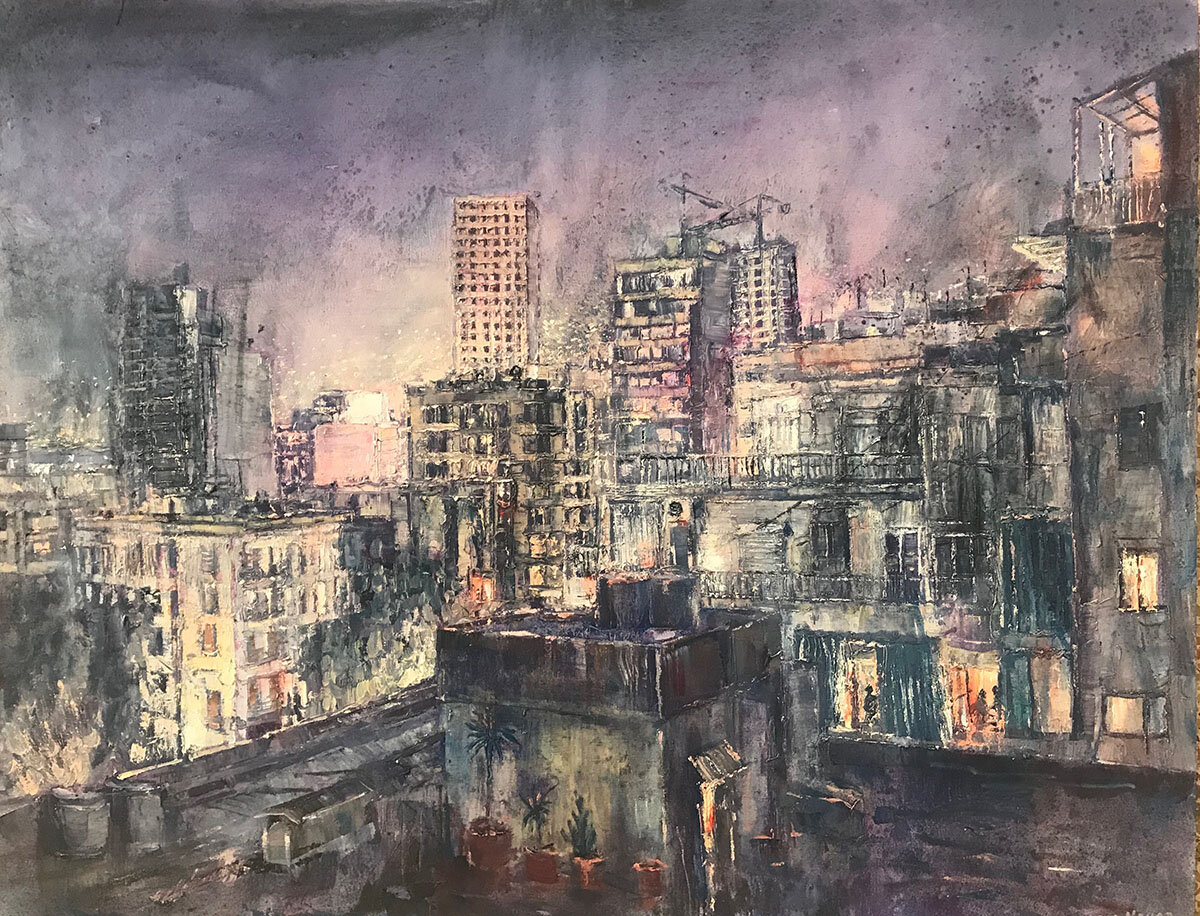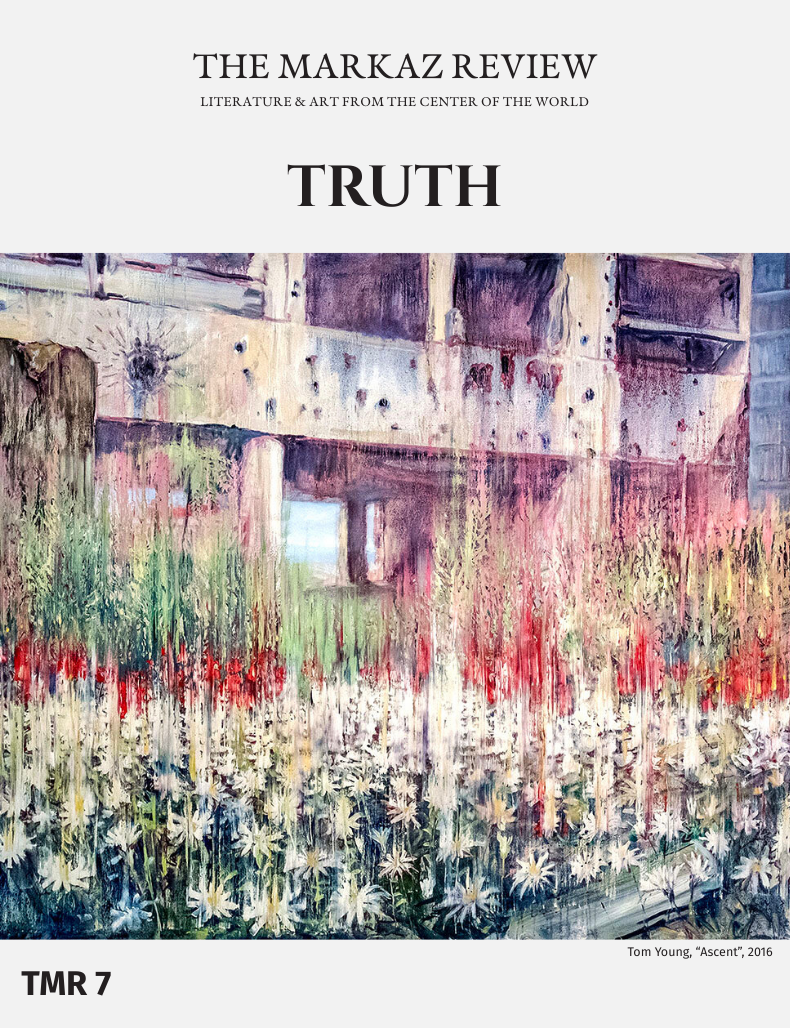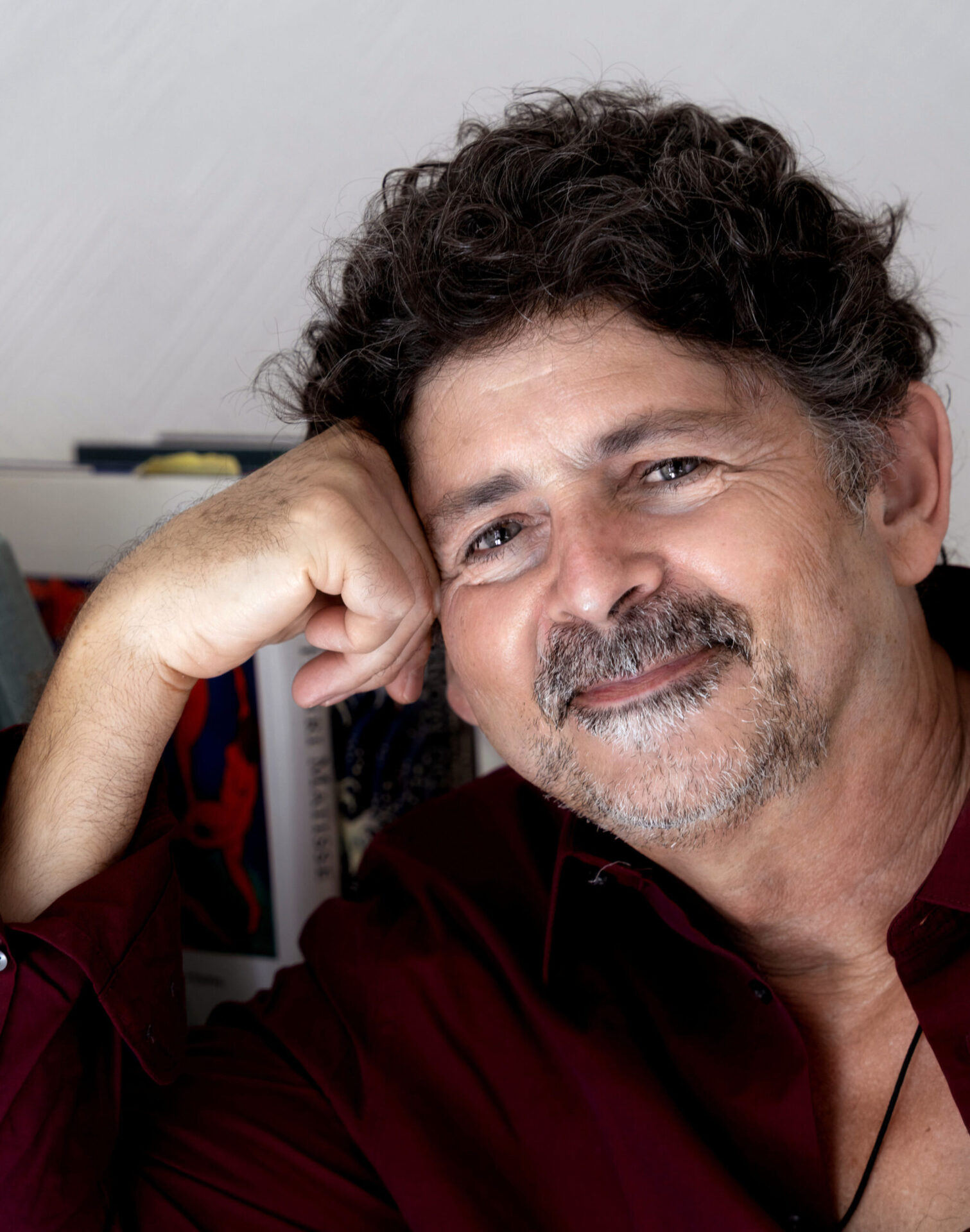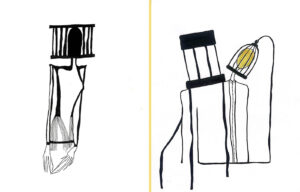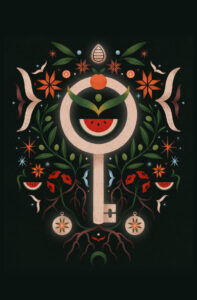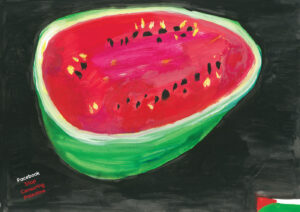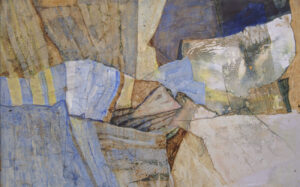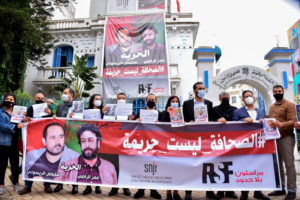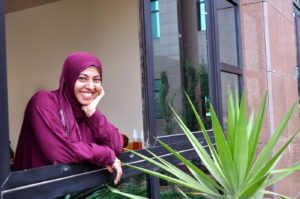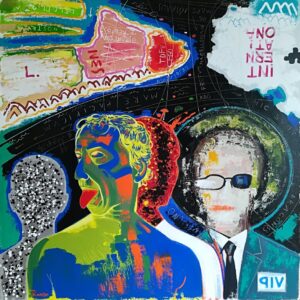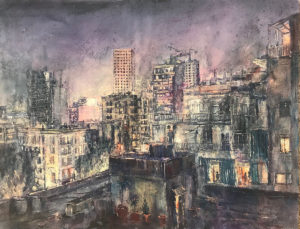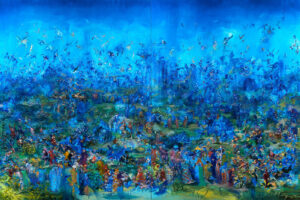Discerning the truth is one thing for a news junkie and another for a flaneur reading a novel. That is to say, the search for truth can be literal — imagine a reporter chasing after facts, stats, quotes and “balance” — while a poet is after something else altogether, something more elusive, but nevertheless precious, like a pearl in an oyster. As consumers of information, news, entertainment and literature, we certainly have our work cut out for us. One almost wishes there were a magic pill one could take to enhance our powers of discernment.
I would venture that we tend to know truth when we find it; but in these times, like adventurers in the selva who have to hack our way through with machetes, we’re faced with conspiracy theories, thick as lianas; with fake news peddled by the very snake oil salesmen on TV we know to be big fat liars; and with corporations and governments that spy on us in the name of capitalism or national security, and that have no compunction about lying to us—none. Moreover, while we may enjoy our social media, and even read it to get the latest news, we’ve got to proceed with caution, hoping to avoid the trolls and the bots while being rewarded with some semblance of the truth.
In The Markaz Review’s 7th monthly issue, we’ve asked contributors to address several of the almost endless truth varieties — in fact, we might wonder whether there are more versions of the truth than there are varieties of tomatoes (over 3,000). In any event, American sociologist Lisa Hajjar, who has visited Guantánamo prison in Cuba no less than 13 times, turns in this month’s centerpiece on torture and US government secrecy, while Andy Lee Roth from Project Censored warns us about the new algorithmic gatekeepers, the Big Tech villains who do not have our best interests at heart. There are also contributions on endangered literacy (Marcus Gilroy-Ware), natural-born liars (Preeta Samarasan), and the truth about Lebanon, Syria, Iraq and Afghanistan, where assassinations of journalists are the new form of national censorship. TMR is also delighted to present recent poems from Ammiel Alcalay, Hala Alyan and Mohja Kahf, and a deeply-moving personal essay from artist-writer Francisco Letelier on the assassination of his father Orlando Letelier, in what was “perhaps the only clear case of state-supported terrorism that has occurred in Washington DC,” according to the late secretary of state George Schultz. Rounding out the issue are new book reviews by Rayyan Al-Shawaf, Stephen Rohde, and Farah Abdessamad, who looks at a risqué new translation of Al-Hariri’s Impostures, and a luxurious, often funny biographical essay from Marian Janssen about the “Amazon sex goddess” and Pulitzer-prize winning poet, Carolyn Kizer, in Pakistan. Finally, Malu Halasa reviews the new graphic novel by Mana Neyestani, and provides an audio rendition of “Chewing Viagra Gum” with its send-up of conspiracy theories.
Our featured artist this month is UK-Beirut painter Tom Young, with additional art from Salma Arastu, Ali Banisadr, Paul Batou and Hayv Kahraman, as well as Sandow Birk, Nikolay Nikolayevich Ge and Daniel Baxter.
Thanks for reading, and as always, supporting TMR.
—Editor
p.s. Next month’s issue on MARSEILLE, publishing April 15th, is guest-edited by Jenine Abboushi.



